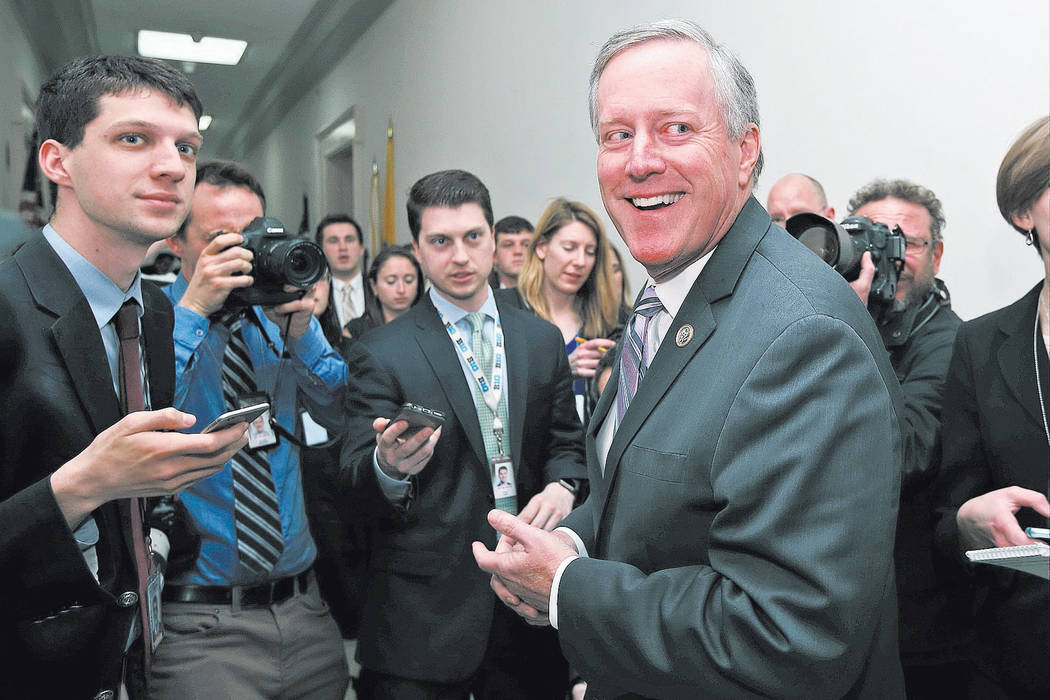STEVE SEBELIUS: Ditch Iowa — and the caucus

Iowa, you had a good run.
But that’s over now.
And while we’re on the subject, it’s time to retire the presidential caucus, too.
People often complain about the inefficiency of government when it comes to getting even simple things done. But if the botched Iowa caucus tells us anything, it’s that the government is much better at counting votes than private political parties.
The crazy math, changing vote totals and delayed results are certainly not as bad as that one time in 2012 when Iowa declared Mitt Romney had won the caucus, when it was revealed two weeks later that it was, in fact, Rick Santorum who won.
But the long delays and failure of a caucus-counting app — which has prompted the Nevada Democratic Party to drop plans to use similar software in our state’s upcoming caucus — show Iowa’s coveted first-in-the-nation nominating caucus badly needs to be given to another state.
Obviously, as a Nevada resident and journalist, I want Silver State even higher on the calendar than it is now.
It’s not just me saying that, either.
Former Senate Majority Leader Harry Reid caught a lot of flak when he denounced Iowa and New Hampshire as sparsely inhabited, mostly white states. Reid successfully used that argument to bump diverse Nevada higher on the nominating calendar.
Former Housing and Urban Development Secretary Julian Castro joined the call this cycle, saying Iowa and New Hampshire were not representative enough to serve as bellwethers of the modern Democratic Party.
National polls suggest things might not be much different if states such as Michigan, Ohio, Colorado or, yes, Nevada, got to go first. But that’s no reason for Democrats not to give serious reconsideration to the entire process of nominating their presidential candidate.
Which brings us to the caucus, a chaotic, confusing way to select delegates to a national political convention.
Unlike regular elections, caucuses are run by political parties. They are subject to sometimes arbitrary party rules, conducted by many volunteers and prone to mistakes.
That’s why — regardless of what happens with this year’s caucus — Nevada should switch to a government-run primary to pick its presidential favorites starting in 2024.
The Legislature could pass a law allowing the secretary of state to set a presidential preference primary on a date to be determined in January or February of every presidential election year. (Flexibility is important because the national political parties still set the calendar, and some upstart states occasionally try to jump ahead.)
In that election, Republicans and Democrats would select their candidate in the familiar voting booth, without having to fill out a preference card, stand around in groups of raucous neighbors and listen to speeches. Voters could cast an early vote if they wished.
Delegates could be determined either on a winner-take-all basis or proportionally based on the top two or three candidates. They’d be bound to the candidate who won the primary on at least the first ballot at the convention.
Notably, the state considered such a system in 2015. A bill to make the change made it all the way through the Legislature before dying on the last day of the session.
There are downsides: The state would have to pay for the election, a burden that would fall mostly on local governments. Costs could be partially offset by charging a hefty filing fee for candidates to appear on the ballot. And this cost would be incurred only once every four years, so the Legislature could anticipate the expense.
Voters would have to deal with three elections in presidential years: the presidential primary, the regular primary in June, and the general in November. (Combining the presidential primary with the regular state primary is logistically difficult, with filing for state offices possibly falling around Christmastime, so leaving that election in June would be preferable.)
Democrats have always loved the caucus because it allows them to organize and mobilize voters. But that advantage isn’t worth the long delays, the potential for inaccurate results and the possibility of becoming another national punchline.
Iowa has clearly shown it no longer deserves the honor of going first. The caucus system has shown it has too many defects to be viable, too. It’s time to fix both problems, and Nevada could lead the way in doing so.
The Iowa caucus had a good run. Now, it’s time for states such as ours to show the nation how it could be done better.
Contact Steve Sebelius at SSebelius@reviewjournal.com or 702-383-0253. Follow @SteveSebelius on Twitter.